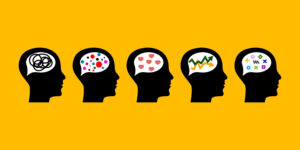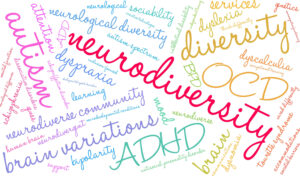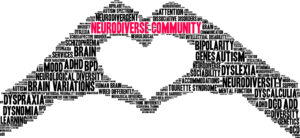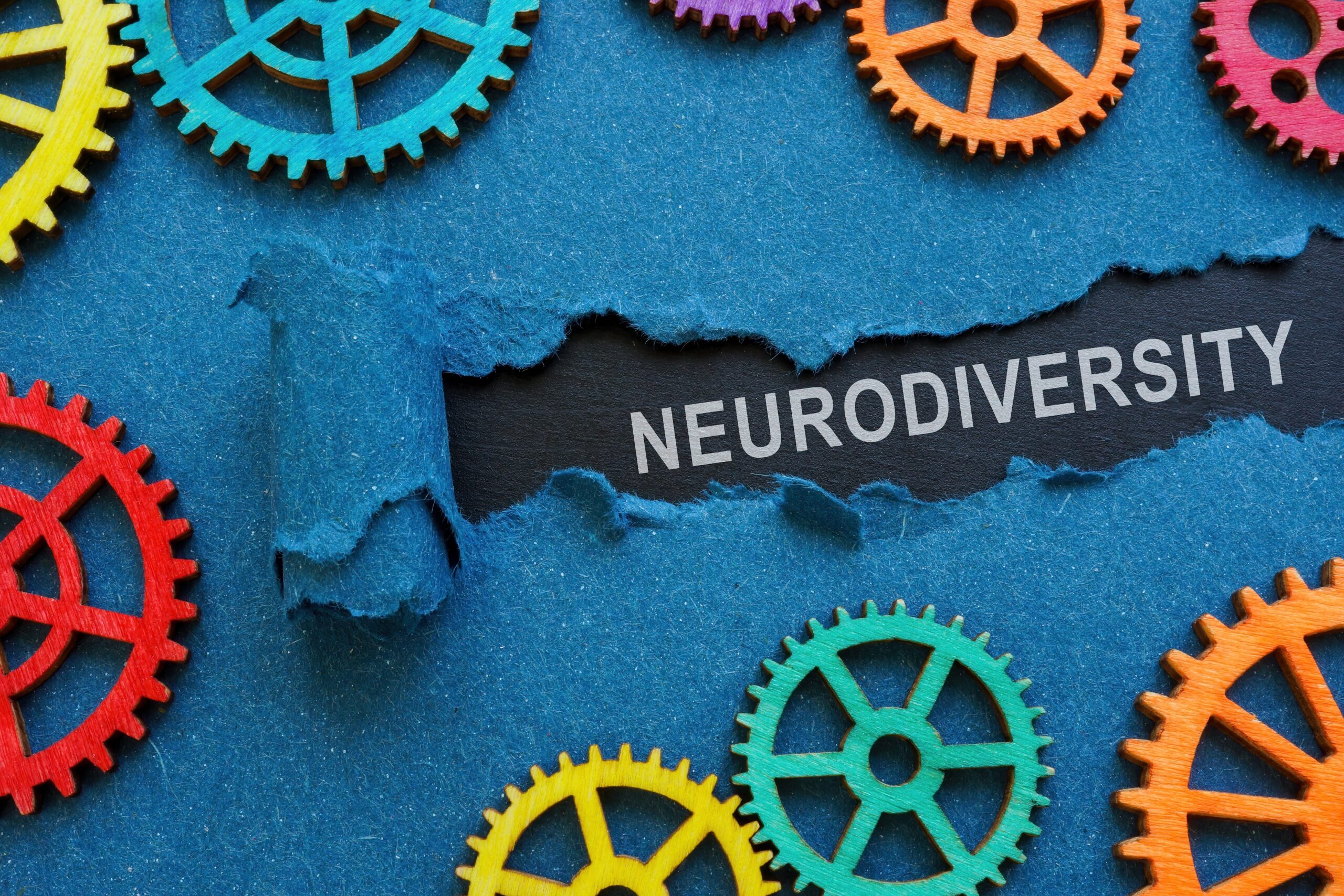Question from a reader:
Dr. A, I am a woman in my 30s and was recently diagnosed with autism spectrum disorder. I got through college, professional life and relationships with some challenges because “I wasn’t like other women.” I don’t think of myself as the “typical person that has autism spectrum disorder and feel like I am normal.” My therapist encouraged me to think of myself and view my medical diagnosis as neurodivergent and not neurotypical. What does neurodivergent mean?
Dear Reader, it sounds like you are self aware and proactive about your well being and mental health. While this article provides general information about neurodiversity, it is not medical advice. Please see a trained mental health professional to provide you with specific treatment recommendations. Please note that neurodiversity and neurodivergence are used interchangeable below.
What is Neurodiversity/neurodivergence?
Neurodiversity refers to the wide variety of neurological functioning that exists among humans and how human brain are different from one another.
Neurodivergence is a term coined by a sociologist called Judy Singer, who is a self advocate with autism. She challenged the conventional ideas of what is normal and abnormal. The term is not a medical term but rather originates in the social sciences.
Singer defines neurodiversity as a state of nature to be respected, an analytical tool for examining social issues and an argument for the conservation and facilitation of human diversity. Neurodiversity provides an opportunity for society to learn more about individuals whose brain operates differently and to look outside the box at how we present information, and to embrace diversity and differences.
The debate initially started among people who were diagnosed with autism spectrum disorder in the 1990s and challenged the medical model that pathologized the way they viewed and functioned in the world. Unfortunately, at the time, people who were diagnosed with autism spectrum disorder were pathologized and seen less than their fellow humans and “abnormal”.
Neurodiversity argues that no two brains are the same, and so creating societal expectations that everyone’s brain functions the same doesn’t leave room for people whose brain is different than the majority of people (also known as neurotypical). Historically, those whose brains function differently were pathologized by the medical model and seen as abnormal. Since the 1990s, there has been research into neurodiversity and creating more space for inclusion for those whose brain works differently, not less or worse than others.

What are different types of neurodivergence?
Since neurodivergence is not a medical diagnosis, there is no medical classification of what mental health diagnosis fall under being neurodivergent. However, it has become very common among people who are diagnosed with ADHD, dyslexia, Tourette’s, learning disorders and among other mental health diagnosis to self classify and self identify as neurodivergent.
Some common experiences among neurodivergent individuals include differences in mental function, learning styles, sensory processing, communication styles and behaviors. They view and experience emotional intelligence, social interactions or the ability to work effectively in a group differently than the majority of the population. Other physical behaviors—such as standing too close to someone or speaking too loudly—may also be present.
Is Neurodivergence a diagnosis?

As mentioned above, neurodivergence is a social term coined by sociologist, Judy Singer. A person can choose to identify themselves as neurodivergent. However, not all individuals who are diagnosed with autism spectrum disorder self identify as being neurodivergent. A medical professional provider an assessment for DSM diagnosis, such as austism spectrum disorder or ADHD, but cannot diagnose someone with having a neurodivergent condition.
How do you support neurodivergence?

1) Create your A team and atmosphere of growth:
It is important to create safe positive environments that allow space to learn and process things differently. Providing time and patience are two examples. Seeking out neurodiversity affirming psychotherapists and psychiatrists to be part of your care team is essential. And a medical professional can also help direct you to when medical interventions or medications may be a good option to explore further, though may not be necessary. Having such professionals on your team will help you emphasize the different strengths that you have and work with them for your advantage. For example, you maybe at hyperfocusing or have different ability to process sensory input.
2) Know Your Rights and Diagnosis:
The Americans with Disabilities Act (ADA) provide protections for individuals who face barriers and discrimination. You are able to seek such accommodation if you have an identifiable medical diagnosis, which is it is important to see a mental health professional for further assessment and diagnosis.
3) Self- Advocacy and be An Ally for others
Remember that you are your best self-advocate. Know and understand your diagnosis, and know your rights under the Americans with Disability Act (ADA) and Disabilities Education Act (IDEA) provisions. Let neurodivergent people know that they can come to you to talk or if they need help. Speak up if you hear someone being prejudiced against someone who is neurodivergent.
4) Recognize that neurodivergence is an important part of someone’s identify
Ask how someone with a certain mental health diagnosis identifies as. Not everyone who has austim spectrum disorder, for example, identifies as neurodivergent. Show humility and openness by asking the person. Accept the answer the person gives you without judgement.

5) Recognize and celebrate neurodiversity and uniqueness
No two neurodivergent people have the same needs or goals. Do not assume. Ask! And then follow up by asking how you can best support them to achieve their goals and meet their needs.

